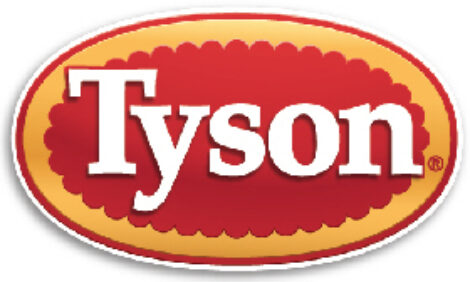



Revamp and reinvestment pays dividends for family business
YORKSHIRE - Keeping the farrowing house full is the main objective for Chris King, Manager of R Wilson & Son's 460-sow breeding and finishing unit at Darrington. The unit has been revamped, restocked and rejuvenated and is now primed for the future.Pete Batty, joint owner, employs a skilled three man team and they are well on their way to achieving their aims.
Over the last four years the business has had a major overhaul. Pete's uncle retired in 2000, and Pete and his Mother took over the farm. At that time, the farm had 320 JSR Genepacker 90 sows, with progeny sold to Cranswick at 66kg weight. The farrowing houses and grow-out accommodation were old, labour-intensive and needed replacing.
 |
| Portapig building for housing weaners moves into place. |
Pete reviewed the business with the aim of increasing sow numbers to 460 Genepacker 90's, as phase 1 of the expansion. The investment required a new fully slatted farrowing house and the sows to be re-housed in an ESF straw yard to replace the old grow-out accommodation. He also increased the finished (bacon) weight to 76kgs.
Batch options
Paul Wright, an independent pig production specialist who works with JSR had an integral role in the devlopment of the new business. He advised Pete how to move over to a three-week batch farrowing system.
The first few months proved to be a testing time with an increased disease presence (PMWS), combined with high levels of pleurisy in growing pigs which all affected growth and performance.
Setting up a multi-suckling system in the farrowing house helped Pete to keep progeny in the same groups. The new ESF sow yard enabled greater control over feeding levels and more accommodation allowed him to start taking the finishing weights higher.
Disease remained a key concern and the decision was taken to run a closed herd with a home-breeding programme.
Initially, Pete invested in 40 purebred JSR Large White GP's which were served with JSR dam line semen, to produce replacement gilts. However, managing the closed herd proved difficult and so Pete and unit Manager Chris, decided to re-stock. "The high level of disease levels was enough to warrant so we wiped the slate clean and started again with a new herd," says Chris.
 |
| Church Farm underwent a thorough cleaning, disinfection and rest regime before it was re-populated. |
Health plan
Vet to Vet communication was instrumental in reassuring all parties that this was right for the business during the decision making process. The farm's own vet Frank Tobin, of Holmefield Farm Services, and JSR's Consultant Vet, Janet Owen of The Garth Veterinary Practice, worked with the team at JSR to plan the re-stock at every stage.
Maintaining the new herd's higher health status was a key concern, though this was given a boost when Pete's neighbour decided to quit pigs. It now means the nearest pigs were six miles away.
The herd was depopulated and then re-stocked with JSR Genepacker 90's and Titan boars. And, to keep it simple, a standing order for replacement gilts was set up at the beginning to ensure a full service regime - another key recommnedation from Paul Wright.
Pete and Chris also used the opportunity to sign up to the Titan Pork Partners Scheme with Geo Adams Ltd, assisted by Yorkshire Farmers. They also joined the Pork Partners GM Free soya contract.
 |
| (From l-r) Chris King, unit manager, Peter Batty, joint owner of the unit and Giles Christie, JSR account manager. |
During the depopulation building work continued to enable the 460-sow herd to farrow on a three-week batch system and take progeny through to bacon. The system required 18 crates with accommodation for 400 weaners. The team opted for two Portapig buildings which provided the extra finishing space needed to meet the target of farrowing 60 sows per batch, every three weeks.
Along with the building work came a complete hygiene programme. Chruch Farm underwent thorough pressue washing and disinfection, which took place once the unit was empty and before the delivery of the new stock. Chris also managed to time it to coincide with the World Cup, which was an advantage!
Isolated
At JSR, 300 Genepacker 90 gilts and 8 Titan boars had been in isolation since 1 May. They were served off-site under the watchful eye of stockman Andrew who was also isolated on the isolation unit and was not allowed to set foot on Church Farm during this time. At the end of July 2006 the second batch of 200 JSR Genepacker 90 gilts were delivered to Church Farm - just six weeks after the last animal had been sold!
A new vaccination programme was also recommended by Frank Tobin for PRRS and EP. Gilts were vaccinated on entry to the unit and it appears to have paid off as the health status has been maintained. Other biosecurity measures, such as electronic gates and CCTV, have also helped improve biosecurity and raise health awareness on the farm.
"Nothing comes onto the unit without us knowing about it," says Chris King, confidently. And, as long as they don't lose the keys to open the gates, he says everything will be just fine!!
So, after all the planning, was the blood, sweat and tears worth it? Yes indeed, says the team. If the performance figures from the new herd are anything to go by then the decision to invest has paid dividends!






